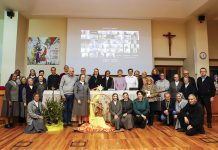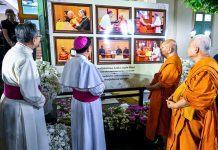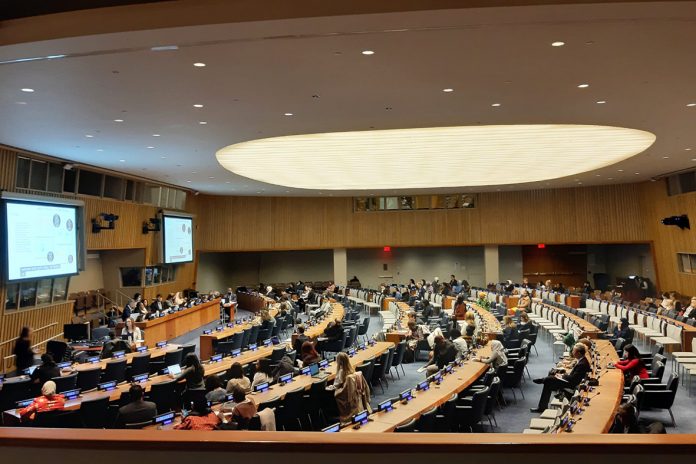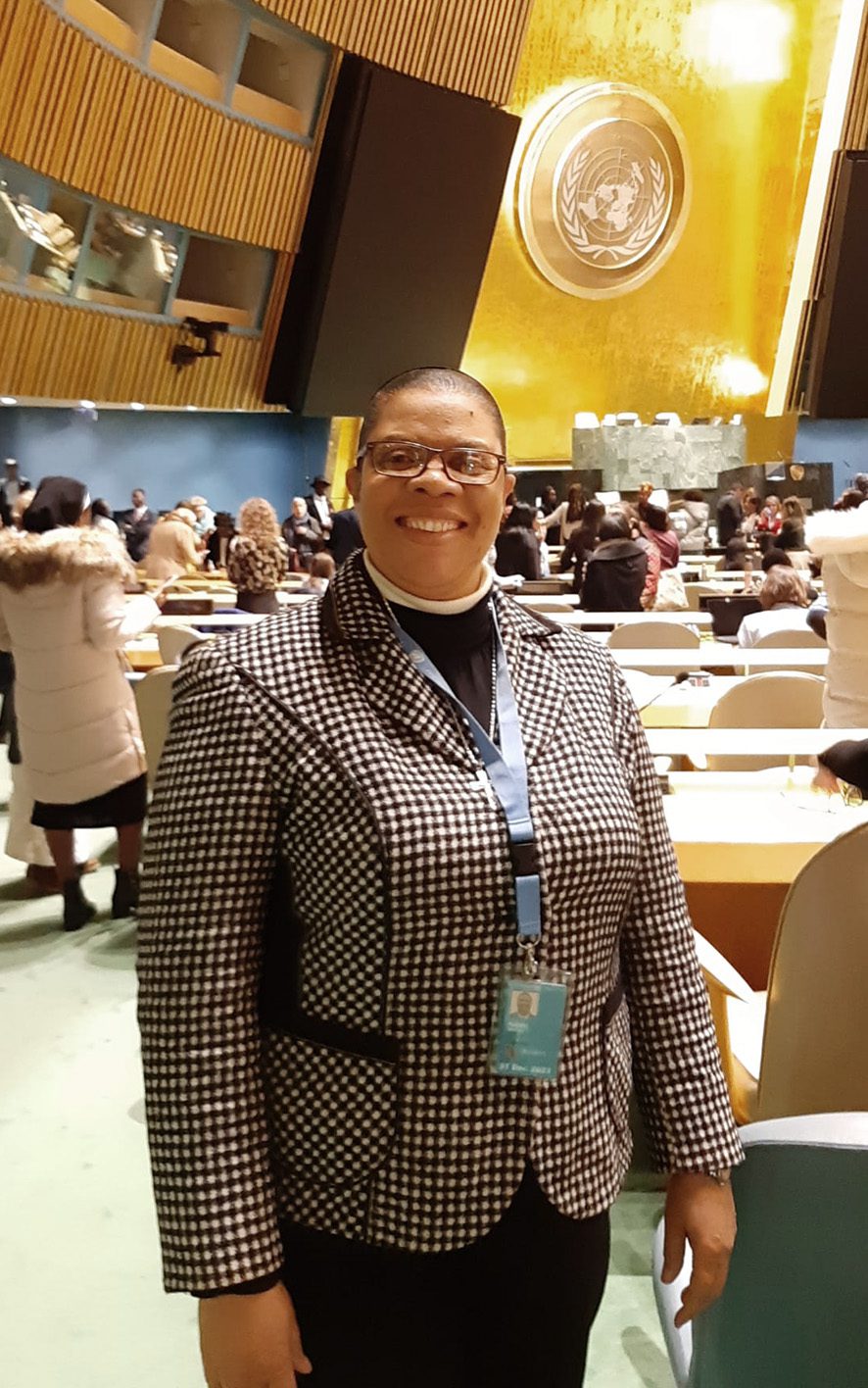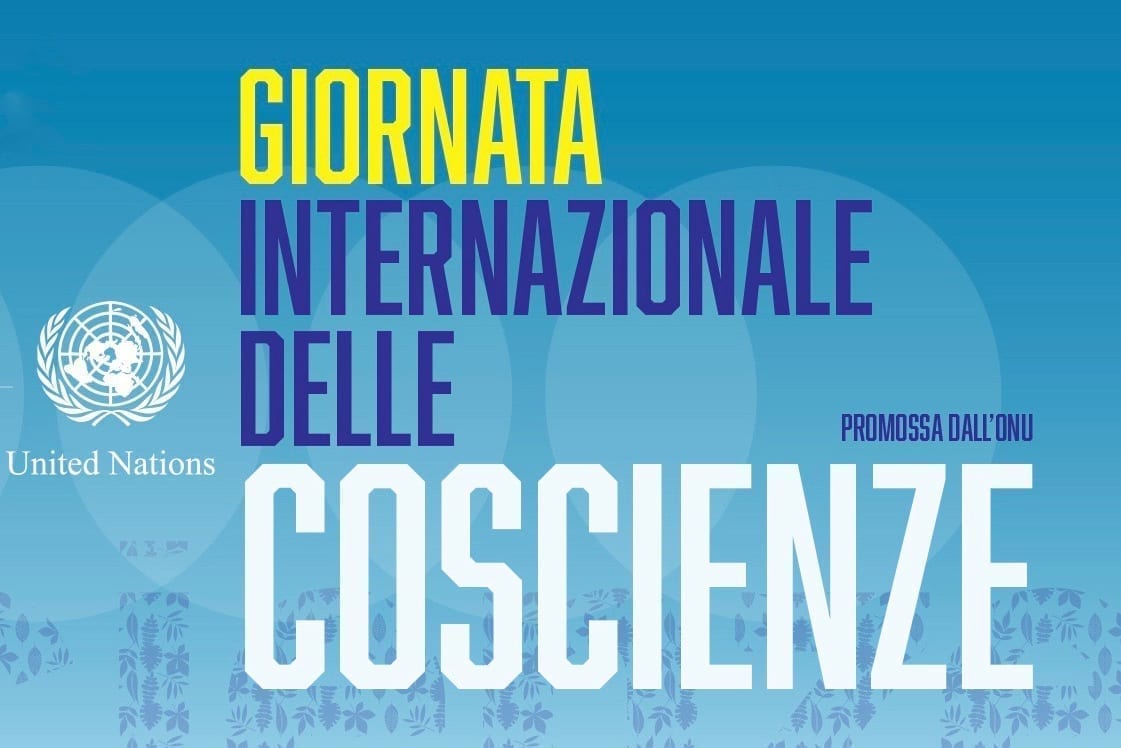Rome (Italy). From 6 to 17 March 2023, at the United Nations headquarters in New York, in the United States of America, the 67th session of the UN Commission on the Status of Women – CSW67 was held, with the priority theme: “Innovation and technological change and education in the digital age to achieve gender equality and the empowerment of all women and girls.”
At the session, organized by UN Women – the United Nations agency for gender equality and women’s empowerment created to promote women’s rights, document the reality of women’s lives around the world, and define global standards on gender equality and women’s empowerment – invited to contribute were representatives of Member States, United Nations entities, and non-governmental organizations (NGOs) accredited by the United Nations Economic and Social Council (ECOSOC) from all regions of the world.
Sr. Annecie Audate, Daughter of Mary Help of Christians, participated in the meeting as Director General of VIDES International, one of the NGOs accredited by ECOSOC, together with a delegation of young women who took part on March 13, in the Forum dedicated to young people from the 194 countries that are part of the United Nations.
In fact, the event saw for the first time the inclusion of youth leaders in the official negotiations, opening them the space to share experiences, knowledge, and good practices related to the role of innovation and technological change in achieving equality of gender and the empowerment of women and girls.
Throughout the days, the interactive dialogue brought together a wide range of stakeholders, including youth leaders, activists, civil society, government and private sector representatives, to highlight the importance of collective responsibility in implementing inclusive digital policies. With the rise of digital technologies, youth representatives stressed the need to ensure that no one is left behind, especially women and girls from rural and marginalized areas, gender minorities, and people with disabilities.
One of the main topics discussed was also the prevalence of online violence and hate speech against women and girls. The young women underlined the importance of developing gender-inclusive technological solutions and supporting digital policies that ensure equal access and more opportunities for women and girls.
From UN reports, it emerges that more than 900 million women – 150 million more since the outbreak of the COVID-19 pandemic – suffer from hunger and food insecurity and more than 54% of women have dropped out of school. The 40 young representatives underlined the inequality between countries, in some of which there is still a struggle for fair work between men and women, who often do not even have the right to attend secondary school.
Following the pandemic, the Institute of the Daughters of Mary Help of Christians, together with three other international female religious congregations, engaged in the mission of protecting the weakest, safeguarding them, and guaranteeing the rights especially of women, young girls, and children, carried out the research How are the Girls? A study on the Rights of Girls in six countries during the Covid-19 Pandemic, in order to reduce the social and educational impact of the pandemic, especially on girls aged 10 to 20.
Recalling the research and experience of the young delegates present at such an important UN event, Sr. Annecie Audate highlighted: “For us FMA, as educators, it is a challenge to face the condition they are experiencing together with the girls. These are situations that affect their psychological and digital health, i.e., their integration into an education in which today knowledge of new technologies is the first step towards social integration”.




